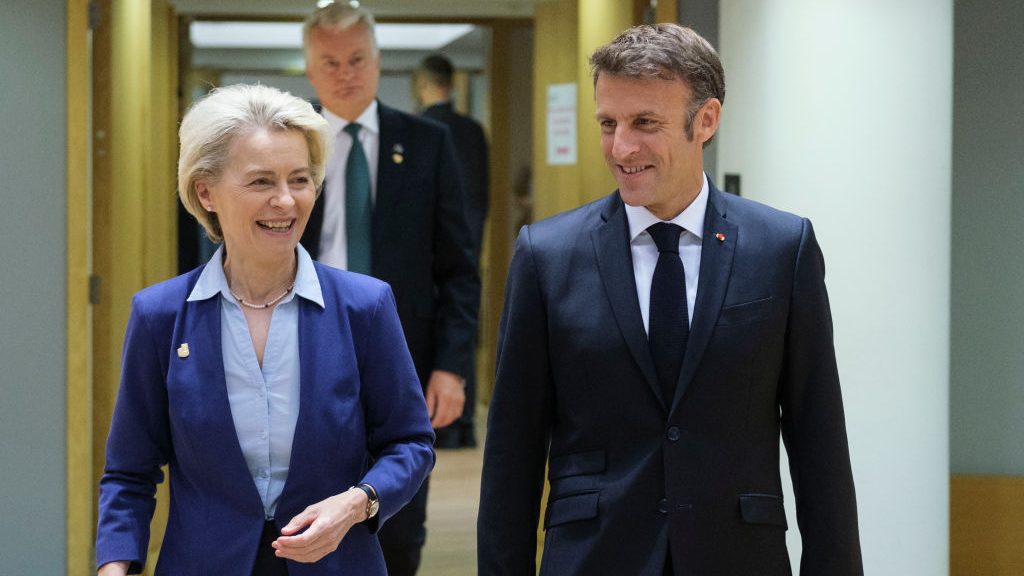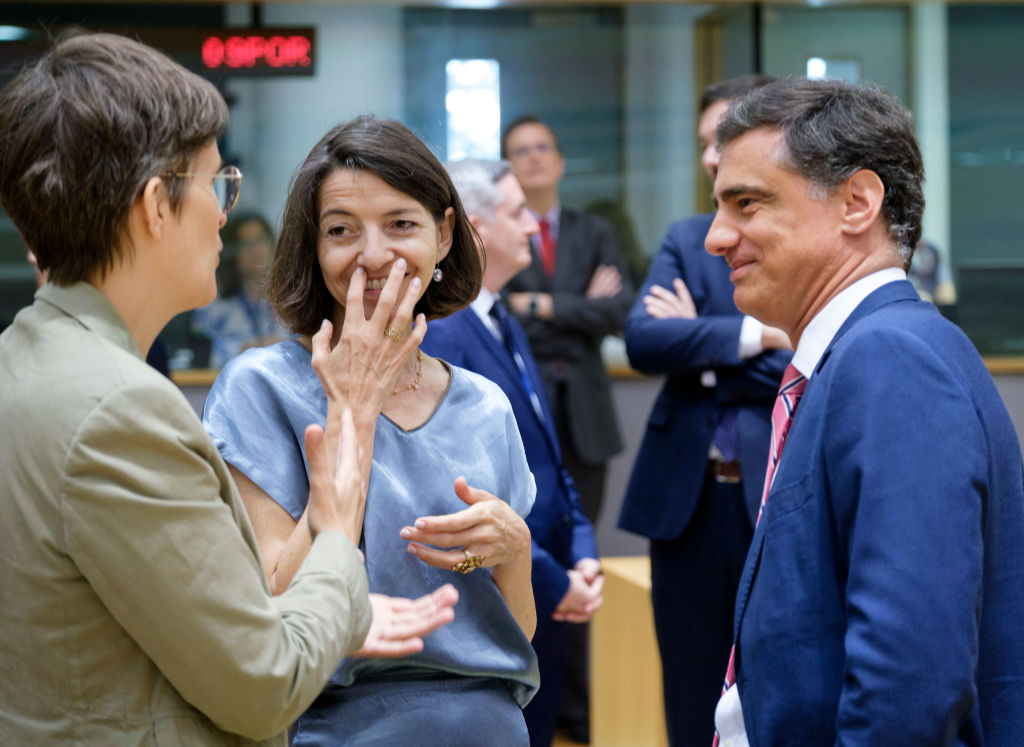An expert report backed by senior figures within the German and French governments has called for dropping unanimity within the European Union.
The paper, which is described as being written by “12 independent experts”, was commissioned by Laurence Boone and Anna Lührmann, the European ministers in the French and German national governments, respectively.
According to a report by Euractiv, the yet-to-be-published document calls for the EU to almost completely axe the bloc’s unanimity principle.
Under current rules, treaty changes within the European Union require the agreement of all the 27 EU Member States.
With Eurocrats eyeing the possibility of an additional 10 states joining the bloc over the coming years, the report claims that such a unanimity principle is no longer practical and that such votes should only be used in exceptional circumstances.
Instead, a form of qualified majority voting should be used, with the report recommending that measures should be deemed as passed in a vote if 60 per cent of EU Member States representing at least 60 per cent of the EU population support a measure.
The proposed changes have not gone uncriticised, with European Conservatives and Reformists Group MEP Cristian Terheș comparing “power-hungry” Brussels to the USSR.
“The big EU countries, like France or Germany, pushing for the removal of the unanimity voting rule display an actual colonial attitude towards the smaller EU countries, inspired by the Soviet Empire’s Brezhnev doctrine of ‘limited sovereignty’ for the nations it annexed,” the Romanian politician told Brussels Signal.
“What EU centralisers demand is more power and money for them but less accountability and sovereignty for the EU Member States and less freedom for the people.”
Guy Verhofstadt and allied MEPs are pushing – again – for federalist reforms of the EU treaties.@CristianTerhes I @guyverhofstadt I @JSaryuszWolskihttps://t.co/tnHRR21UvK
— Brussels Signal (@brusselssignal) September 15, 2023
Also recommended by the document authors is that the number of Eurocrats in Brussels be limited.
The experts suggest that the theoretical maximum number of 751 MEPs outlined by the Lisbon Treaty should be kept, refuting any suggestion that this limit ought to be raised as more countries enter the bloc.
It also advocates for reducing the number of sitting European Commissioners from its current 27.
Under the current model, each EU Member State is entitled to appoint one Commissioner each, with countries only wrestling over the relative importance of their appointed Commissioner’s position.
How likely that any of these reforms ever come to pass remains to be seen, with the document being one of many recommending changes to the Eurocracy amid the possibility of expansion.
A similar programme spearheaded by Eurofederalist bigwig Guy Verhofstadt MEP has advocated for even more radical changes.
This includes giving the European Parliament the ability to propose legislation, as well as forcing Member States to hand over all control regarding environmental and climate policy to Brussels.
Seen as a major push for Eurofederalism, the reforms initially appear unlikely to go anywhere, with the changes needing the approval of more Eurocritical nations, such as Poland and Hungary.
Jacek Saryusz-Wolski has rejected claims by news outlet Politico that he signed a document endorsing a radical form of Eurofederalism. https://t.co/dG0VrHKLED
— Brussels Signal (@brusselssignal) September 4, 2023





